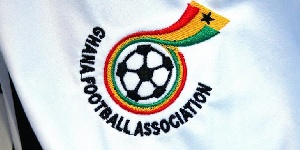On Thursday, June 7, 2018, the Minister of Information issued a statement that, among others, stated that, “Government has decided to take immediate steps to have the GFA dissolved.
Government will shortly, thereafter, announce provisional measures to govern football activity in the country, until a new body, is duly formed…”
Needless to say, the government statement was greeted with mixed reactions, including those who said government’s actions are illegal and will also attract FIFA ban. Let me quote one such reaction from Lawyer Ace Anan Ankomah on Facebook:
“I do NOT believe this. There’s no way the President will do this.
The President has NO POWER to dissolve a private company limited by guarantee. If true, this one won’t have to wait for FIFA. Our own courts will strike it down.”
I share Lawyer Ankomah’s position. The GFA is registered under
Section 9(1)(b) of the Companies Code, 1963 (Act 179), as “a company having the liability of its members limited to such amount as the members may respectively undertake to contribute to the assets of the company in the event of its being wound up, in this Code referred to as a company limited by guarantee.” Any process to dissolve the GFA must, therefore, follow the laws of Ghana in respect of liquidation of a company under the Bodies Corporate (Official Liquidation) Act, 1963 (Act 180).
Lawyer Samson Lardy Anyenini puts it this way:
“The GFA is made up of clubs most of which are companies limited by shares. The referees are not members of the clubs, club officials by virtue of the principle of company law are separate and distinct from the clubs. It is, therefore, illegal to dissolve an association just because of the conduct of individuals who are not by themselves members of the association.”
FIFA on its part protects its member associations by banning any
member whose governance is either controlled by or interfered with by any external body, especially governments or governmental bodies, in accordance with relevant FIFA statutes.
Why would the Ghana government, therefore, want to adopt measures that can be shot down by our courts as well as attract a ban from FIFA?
For the avoidance of any doubt, I think government cannot sit idly by in the face of blatant bribery and corruption in Ghana football and the abuse of the public trust in the governance of the game.
For instance, if a citizen buys a ticket to watch a match expecting fair competition promised by the GFA, then surely the State must intervene if the public is being scammed through match-fixing and the GFA does nothing about it. It even has security implications because angry fans sometimes take the law into their own hands by attacking match officials.
Government has a role in maintaining law and order and thus
has a right to deal with the root cause of such violence. But the
action government takes must be rooted in law (company law) and FIFA statutes.
That is why I want to suggest other options that I believe
will achieve the same objectives without any legal obstacles. The GFA is a company limited by guarantee, not a government ministry or a state enterprise.
1. Government, in consultation with various stakeholders, must publish a set of reforms that the GFA must implement to achieve the aspirations of Ghanaians and to restore the lost dignity of football in Ghana. Until the GFA implements those reforms, government must activate Steps 2 to 5 below.
2. What right has the GFA got to ‘represent’ the Republic of Ghana in international sports circles, as a private company limited by
guarantee? Government must immediately communicate to the GFA and all international football governing bodies that with immediate effect, GFA has no right to represent the Republic of Ghana and as such cannot use the name and flag of the Republic of Ghana under any circumstances. For instance, the match played on Thursday against Iceland would have had to be classified as “Iceland vs GFA” (with GFA’s logo displayed), not as “Iceland vs Ghana” (with the Ghana flag displayed).
3. Government must with immediate effect stop any direct financial contribution towards any activities of the GFA. Government doesn’t contribute financially to other companies limited by guarantee, so why must it do differently for GFA, whose governance it cannot interfere with?
4. The National Sports Authority must be instructed to ensure that the GFA pays commercial rates for using any Republic of Ghana facilities for GFA matches, just as any private company will pay for using NSA facilities.
5. Government must issue an order preventing all State institutions from providing any form of sponsorship or support to the GFA.
I believe with these actions, government will not directly interfere
with the governance of a private company limited by guarantee, but can still achieve reforms that many Ghanaians believe are long overdue.
Opinions of Wednesday, 4 July 2018
Columnist: Kwaku Antwi-Boasiako



















